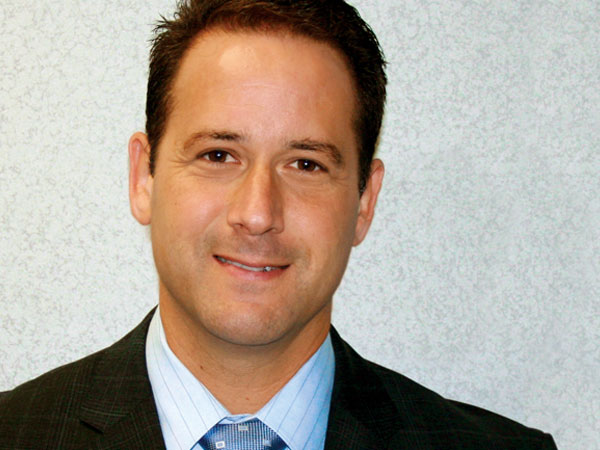Eric Cohen: Making a Clean Sweep

NAME: Eric Cohen
TITLE: Vice president of logistics
COMPANY: Waxie Sanitary Supply, San Diego, since 2000
PREVIOUS EXPERIENCE: Captain, supply and logistics officer, U.S. Marine Corps; factory representative, Volvo Cars North America; assistant director of logistics, Kaiser Permanente; corporate operations director, senior director of logistics, Waxie Sanitary Supply
EDUCATION: University of California, San Diego, B.A. in history, 1991; Penn State University, supply chain management certificate, 2002; Florida Institute of Technology, Masters in Business Logistics, 2010
When the U.S. Marine Corps made Eric Cohen a supply officer, he felt crushed. “I pictured myself passing out chem lights and toilet paper,” he says. It was not the macho role he had imagined when he joined the service.
“But it was one of the best things that ever happened to me,” Cohen adds. At age 24, tasked with supplying an engineer batallion, he was in charge of 28 marines and a $1-million budget. “You can’t even rent a car when you’re 24,” he notes.
In addition to providing rewarding work, Cohen’s military logistics experience served him well when he left the Marines to enter the civilian workforce. Today, he’s vice president of logistics at Waxie Sanitary Supply, a regional distributor of cleaning products and equipment. Based in San Diego, Waxie sells its products to commercial, industrial, contractor, and institutional customers through 21 inventory centers in nine western states.
Cohen has responsibility for the operations managers who work in the company’s 10 distribution centers. He works with them to control costs, improve service, and manage human resources. He’s in charge of distributing product from the inventory centers to customers, which also makes him responsible for a 145-truck private fleet and managing the company’s relationship with UPS and other carriers. He also oversees Waxie’s transportation management software.
When the company adds a new site, Cohen chooses the location, designs the warehouse layout, determines how product will be stored and what equipment the facility needs, and manages equipment leases.
Getting a new facility running was especially challenging when Waxie moved from one building in Denver to a new facility one mile away. To complicate the situation, Waxie had just acquired another company, and it needed to shift that operation to the new inventory center.
Cohen and his team spent 18-hour days moving inventory and racking, but the city hadn’t yet issued a permit to install the racking in the new building.
“The products and equipment were spread out across the warehouse,” he says. Then the team spent a weekend moving the acquired company into the new facility. “But we were ready for business on Monday,” he notes.
One ongoing challenge for Cohen is finding the sweet spot that gets customers the products they want, when they need them, without pushing fulfillment costs too far. “Having a high fill rate is important,” he says. But it’s impractical to stock every product a customer might want in every location. Finding the right balance is key.
During his years at Waxie, Cohen has gradually learned to treat work not as a sprint, but as a marathon. Devising a solution, then fighting for approval to implement it quickly, isn’t always the best course.
“You plant and cultivate the seeds, and let them grow,” Cohen says. “Sometimes they grow in surprising ways.”
The Big Questions
What do you do when you’re not at work?
I spend my weekends surfing and hanging out with my wife and our two boys. My son and I are learning to play the electric guitar, and we’re restoring a ’68 Camaro.
Ideal dinner companion?
Ulysses S. Grant. I’d like to find out how he was able to take over the Army of the Potomac after so many failures, turn it into a successful organization, and win the Civil War.
What’s in your laptop bag?
Besides my laptop and wireless stick, there’s not much. I store everything on my smartphone.
Business motto?
Make a difference. Go out there and innovate.
If you didn’t work in supply chain management, what would be your dream job?
Running a charter sailing company to take people snorkeling, fishing, and surfing.
